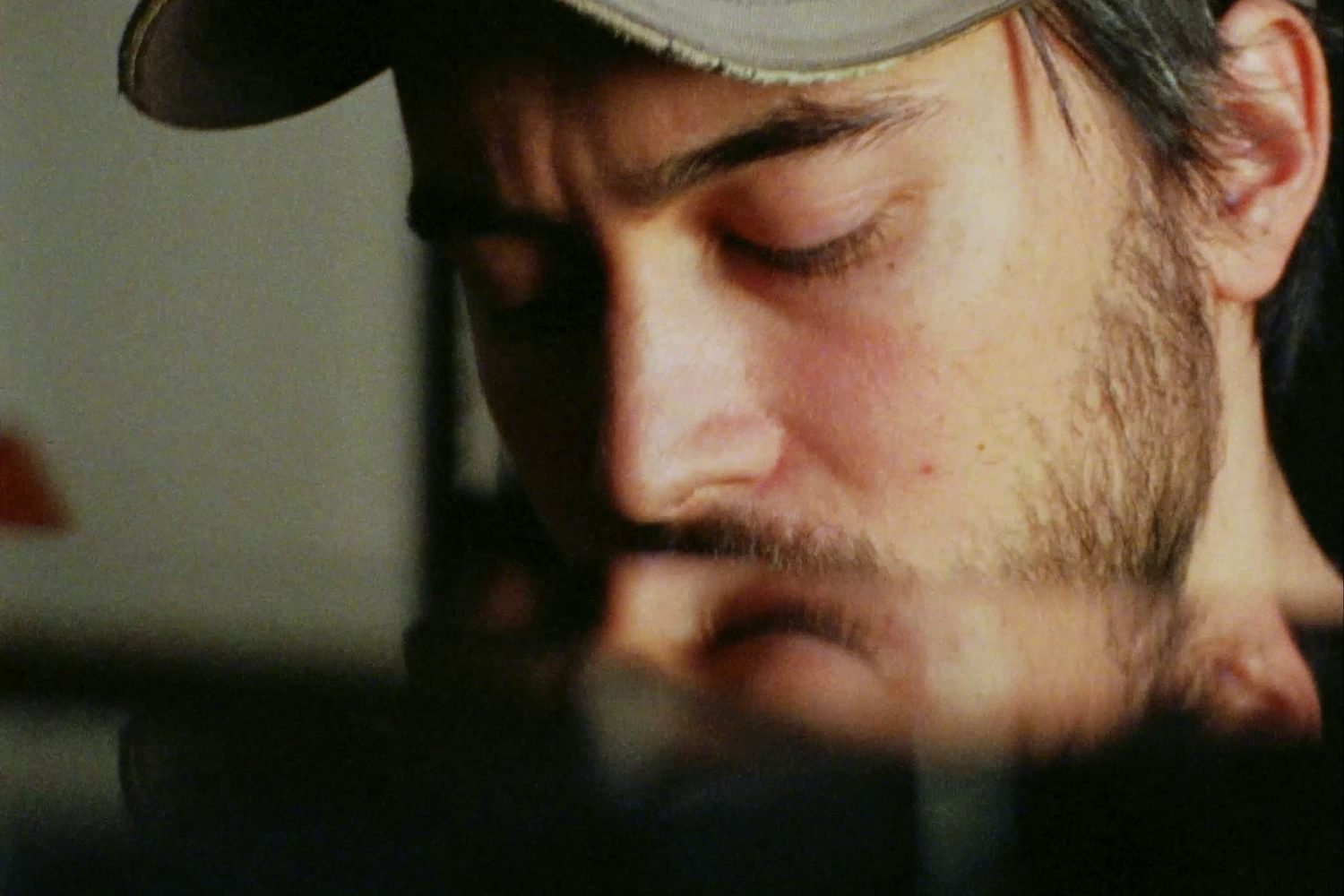
Interview Something Like Happiness: Alex G
Nine albums in and, on “God Save The Animals’, Alex G is still treading his own path. This time however, he’s letting a few more people in on the journey too.
“Having first found prominence uploading self-produced tracks to Bandcamp and YouTube more than a decade ago and while still in his teens, Alex Giannascoli has gradually become a quintessential troubadour of the internet age.
It’s perhaps somewhat ironic, then, that an artist whose name was once so synonymous with the online world, with all of its communicative possibilities, has always seemed rather elusive - distant, even. It also makes it all the more surprising when Alex joins today’s interview with such positive energy, laughing and chatting patiently whilst the connecting Zoom call fights against the forces of feedback and teething problems. He’s at home in Philadelphia, a few days before he heads over to Europe for a run of shows and a couple of weeks after millions tuned in to watch his performance on The Tonight Show with Jimmy Fallon. With these accolades stacking up, Alex still carries himself with an approachable “slacker’ demeanour - a far cry from the jaded persona that could befit a man once dubbed by certain factions of the media as “America’s greatest living songwriter’
His new album, “God Save The Animals’, is undeniably a product of the same prolific mind as his other releases, albeit with a few edges sharpened here and there. There are one or two lyrical touchstones that also feel new, most notably the titular subject, which makes itself known at multiple points throughout the album’s thirteen tracks, not - Alex clarifies - as a direct religious entity, but as a more generalised representation of faith in something, or someone.
Famed for making all of his music in solitude, working with external sound engineers and studios for the first time on his ninth album offered Alex a new challenge to sink his teeth into. “It was kind of weird at first,” he recalls. “‘Cause it took a while to get used to working with engineers and figuring out a process that worked with the way I write.”
Where some artists seek drastic environmental changes or a fresh headspace in which to embark upon their next creative era, Alex has always thrived when working within manageable, controlled setups, with his finger firmly on the button. “I think that’s valuable because I like to let my mind go a little out of control,” he explains. “So, by executing ideas in a physical environment that I’m familiar with, my internal process can be less controlled.” He ponders for a moment whether his explanation might have come off as pretentious: “I don’t know if that makes sense, but it’s how I see it,” he laughs.
Whether intentionally or not, this manageable means of self-production has contributed greatly to the Alex G sound. Writing, recording and producing whole albums, and putting them online in a similar fashion to contemporaries like Car Seat Headrest or Mac DeMarco in his early Makeout Videotape project, put Alex amongst the vanguard of supposed bedroom pop or lo-fi artists: a label that follows him to this day, despite his hefty experience and record deal with indie powerhouse Domino.
“I guess it bugged me at first,” he says of the tag. “Even at the very beginning, I never understood why people called my process lo-fi, because I was trying my best to make it sound:” he thinks briefly, “: hi-fi, I guess?”
It may have seemed unthinkable during those early days of online pickup that these self-sufficient creatives would infiltrate the mainstream, but The Tonight Show, with a regular viewership of between one and two million, is nothing if not a marker of cultural standing. “Yeah, that was a really cool experience,” Alex responds. “On its own, the performance doesn’t necessarily mean much. But it felt good to see that people in my life who don’t understand what I do could see me on Fallon, and see that I’m working towards something, and understand it a bit more.”
And do these accolades go some way towards shaking the DIY tag? “There isn’t much I can do about how people categorise what I do,” he shrugs. “I’m just grateful people are saying things about my music. It’s nice that people give it the time of day, and there’s really no use in getting annoyed about that stuff.”
This willingness for fans to re-label, re-appropriate and make his music their own has also permeated the way in which Alex G writes, with lyrical ambiguity flowing throughout all of his output.
It’s not unusual for songwriters to avoid speaking about the specifics of their canon, but in Alex’s case, songs and even entire albums have previously been left fully open to interpretation: a process which has arrived by design. “The initial sentiment of the lyrics comes out pretty quickly, it’s like an impulsive thing,” he says. “Then I spend a lot of time reworking my lyrics to try and allow for more angles besides my own angle. I’d rather there was some universality to it that could be appreciated by other people after I’m done with the song.”
One prevailing theme throughout “God Save the Animals” ambiguity is a sense of grounded acceptance within its narrator, as he allows circumstances to wash over him, making peace with where things are headed and who he is. “A love will come in time,” Alex sings on album opener “After All’, while final track “Forgive’ opens with the refrain: “Forgive yesterday, I choose today.”
“I mean, I guess my writing has matured since [2019’s previous album] “House of Sugar’, but only in the same way that “House of Sugar’ did from “Rocket’ before that,” he considers. “To be honest, I’m not even sure that “mature’ is the right word. I’m always changing and my songs just reflect that.”
Whether the prospect of maturity seems like too fine a point to put on the process, these lyrics do point to a new outlook from the writer. Now in his late twenties and cohabiting with his partner, with lockdown having left most people emotionally changed in some form, “God Save The Animals’ seems to suggest an author with something of a new attitude to life.
“Actually yeah, I think so,” he responds to the sentiment. “It’s hard to say at what rate these changes happen, but I think there is a selfishness throughout my life that is slowly dissolving.” The point arrives slowly, and it’s difficult to decipher whether Alex - who rarely discusses his personal life in interviews - is choosing his words wisely or genuinely approaching the question with thoughtful sincerity. “Like, I’m still selfish,” he continues, “but I guess maybe I’m becoming more aware of my own selfishness as I get older?”
Perhaps the lack of intentional theme or concept throughout his nine albums to date has passively allowed for each to stand as a bookmark - capturing a certain time, place or snapshot of Alex’s life with absolute purity.
In much the same way that early releases like “Race’ bottled a feeling of fantastical teenage escapism, and 2014’s “DSU’ embodied the kind of indestructible experimentalism that arrives with the early fringes of adulthood, “God Save the Animals’ is a portrait of a narrator in his late twenties: more sure than ever of who he is, albeit wise enough to know that he’s not finished learning. Representative of a time in life where you choose your battles, allow for the pettiness to pass you by and come to the realisation - as he sang to millions of viewers on The Tonight Show so recently - that every day is a blessing.
‘God Save The Animals’ is out 23rd September via Domino.
Subscribe to DIY
Buy Now
Read More

Caroline Polachek, Black Country, New Road and Alex G provide the must-see moments at a sun-drenched Wide Awake 2023
The day charts a path through some of the most exciting music being made away from the mainstream.
1st June 2023, 12:00pm
Alex G announces vinyl-only live album ‘Live From Union Transfer’
The album is due out 30th June via Domino Records.
5th May 2023, 12:00am

Alex G releases video for ‘Immunity’
Lifted from his most recent album ‘God Save The Animals’.
28th February 2023, 12:00am

Alex G, Black Country, New Road, Viagra Boys and more join Wide Awake 2023 line-up
Los Bitchos, Warmduscher and O. are also among the new names announced.
24th January 2023, 12:00am
With Bob Vylan, St Vincent, girl in red, Lizzy McAlpine and more.


